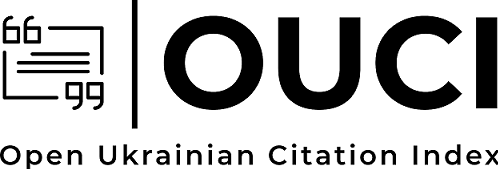INTERVIEW RECORDS OF UKRAINIAN HUMANITARIAN INTELLECTUALS IN 1920-1930s FOUND IN THE ARCHIVE-INVESTIGATION CASES: ANALYSIS AND INTERPRETATION
DOI:
https://doi.org/10.28925/2524-0757.2018.2.124-9Keywords:
humanitarian intellectuals, interviews’ records, archive-investigation casesAbstract
This article analyses the important documents on repression of the Ukrainian humanitarian intellectuals in 1920-1930s. A very sophisticated source of research, archive-investigation cases of the repressed, is analysed. The investigation cases of Yevheniia Spaska, Fedor Kozubovskyi, Mykhailo Kozoris reflect how important the interview records of Ukrainian humanitarians were for framing up cases. The article examines the ways in which historical facts can be proved being authentic. Because the records of the interviews were used for terror, there is a problem of identifying the authenticity of an information in those records. It is defined that the extent of probability that some events happened in reality depends on the time period. At times of the highest activity of repressive activities the credibility of facts decline significantly as the cases could not be investigated properly and because of significant falsification. The probability of some facts truthfulness rises when they do not relate to the essence of the case, for instance, Yevhenia Spaska mentioned about her brothers who had been fighting for the White Movement and immigrated thereafter. If the subject of a charge does not respond to the social estate of the defendant, the facts have been falsified. The archaeologist Fedir Kozubovskyi was charged with a participation in a terroristic organisation. To determine credibility of the information in the records of the interviews the other cases on rehabilitation are used. Mykhailo Kozoris’ case is a striking example on illegal ways of evidence collection in times of rehabilitation. Those materials, which were lacking for one case, were falsified as obtained in other cases.
Downloads
References
Pyrih, R. Ya. (Ed.) (1998). Arkhivno-slidchi spravy represovanykh: naukovo-metodychni aspekty vykorystannia. Zbirnyk naukovykh prats, K., 161 p. [in Ukrainian].
Bilokin, S. (2013). Masovyi teror yak zasib derzhavnoho upravlinnia v SRSR (1917–1941 pp.): Dzhereloznavche doslidzhennia. NAN Ukrainy, Instytut istorii Ukrainy, Tsentr kulturolohichnykh studii, Vol. 2, Drohobych: “Kolo” [in Ukrainian].
Hrankina, O. V., Omelchuk, D. V., Moskovchenko, N. P. (Ed.) (1998). Vykorystannia arkhivno-slidchykh sprav hromadian, represovanykh u 1920–1950‑ti rr. Metodychni rekomendatsii, K., 35 p. [in Ukrainian].
Kalakura, Ya. S. (1998). Osoblyvosti dzhereloznavchoi krytyky arkhivno-slidchykh dokumentiv. Arkhivno-slidchi spravy represovanykh: naukovo-metodychni aspekty vykorystannia: Zbirnyk naukovykh prats, Pyrih R. Ya. (Ed.) [in Ukrainian].
Mankovska, R. V. (1998). Arkhivno-slidchi spravy yak dzherelo doslidzhennia represii sered muzeinykiv 30-kh rr. Arkhivno-slidchi spravy represovanykh: naukovo-metodychni aspekty vykorystannia: Zbirnyk naukovykh prats, Pyrih R. Ya. (Ed.) [in Ukrainian].
Pobozhii, S. (1998). Muzeini diiachi Slobozhanshchyny: O. Poplavskyi. Treti Sumtsovski chytannia: materialy naukovoi konferentsii, prysviachenoi 95‑richchiu XII Arkheolohichnoho zizdu (18 kvitnia 1997 r.). Kh.: Kharkivskyi istorychnyi muzei, 54–57 [in Ukrainian].
Fond 263, Description 1, Unit 30353, T. 1, Tsentralnyi derzhavnyi arkhiv hromadskykh obiednan Ukrainy (dali — TsDAHOU).
Fond 263, Description 1, Unit 47912, TsDAHOU.
Fond 263, Description 1, Unit 47757, T. 1–3, TsDAHOU.
Published
How to Cite
Issue
Section
License
Copyright (c) 2019 Kyiv Historical Studies

This work is licensed under a Creative Commons Attribution-NonCommercial-ShareAlike 4.0 International License.
Authors who publish in this journal retain the right of authorship of the work and give to the journal right of first publication of this work under the conditions of Creative Commons: Attribution-NonCommercial-ShareAlike 4.0 International (CC BY-NC-SA 4.0), which allows others freely distribute the work published with reference to the authors of the original work and the first publication of this magazine.














